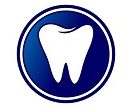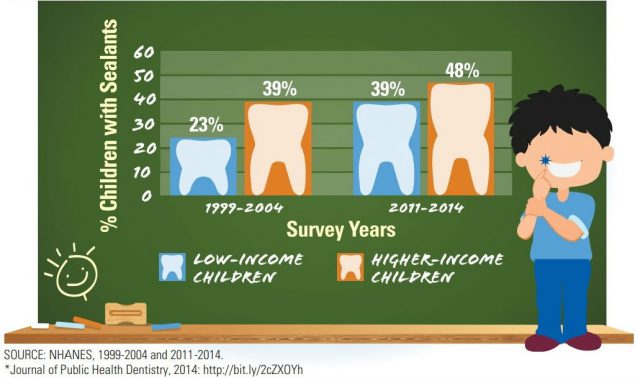Sealants and Preventive Care: Protecting Your Teeth From Decay
Are you looking to keep your teeth healthy and free from decay? Look no further! In this guide, we will explore the benefits of sealants and preventive care in protecting your teeth.
Sealants, a dental treatment that acts as a shield against decay, can be a game-changer for your oral health. Discover how sealants work and the advantages of preventive dental care.
We will also provide you with helpful tips on maintaining healthy teeth. By taking proactive steps, you can avoid the long-term effects of decay prevention and keep your smile shining brightly.
Let’s dive in and learn how to protect your teeth from decay with sealants and preventive care!
Key Takeaways
– Sealants create a barrier that prevents bacteria and food particles from causing cavities.
– Regular dental check-ups and cleanings help identify early signs of dental issues.
– Good oral hygiene habits at home remove plaque and bacteria.
– Decay prevention preserves natural teeth and maintains a healthy smile.
Importance of Sealants
Sealants are an essential tool in protecting your teeth from decay. They’re thin, plastic coatings that are applied to the chewing surfaces of your back teeth, also known as molars and premolars. These teeth have deep grooves and pits that can be difficult to clean properly with just regular brushing and flossing. By sealing these grooves and pits, sealants create a barrier that prevents bacteria and food particles from getting trapped and causing cavities.
The application of sealants is a quick and painless process. Your dentist will clean and dry your teeth before applying an acidic gel to roughen the surface of your teeth. This helps the sealant bond properly. The gel is then rinsed off, and your teeth are dried again. The sealant material is then painted onto the chewing surfaces of your teeth and allowed to harden, usually with the help of a special curing light.
Sealants are most commonly recommended for children and teenagers as their permanent teeth erupt because they’re more prone to cavities during this time. However, sealants can also benefit adults who’ve deep grooves and pits on their teeth. With proper oral hygiene and regular dental check-ups, sealants can provide long-lasting protection against tooth decay and help maintain your oral health.
How Sealants Work
To understand how sealants work, you should know that they create a protective barrier on your teeth’s chewing surfaces. This barrier is made of a thin, plastic material that’s applied to the pits and fissures of your molars and premolars.
Here’s how sealants work:
– First, your dentist or dental hygienist will clean and dry your teeth. This ensures that the sealant adheres properly to the tooth surface.
– Next, an acid solution is applied to the chewing surfaces of your teeth. This helps create a rough surface that allows the sealant to bond effectively.
– Once the acid solution is rinsed off and your teeth are dried again, the sealant is applied. It’s usually a liquid that quickly hardens into a protective coating.
– The sealant fills in the deep grooves and pits on your teeth, preventing food particles and bacteria from getting trapped in these areas.
– By creating a smooth, protective barrier, sealants make it easier for you to keep your teeth clean and free from decay.
– Sealants can last for several years with proper care and maintenance.
Benefits of Preventive Dental Care
Taking care of your teeth through preventive dental care has numerous benefits that can help keep your smile healthy and free from decay. Regular dental check-ups and cleanings are an essential part of preventive care. During these visits, your dentist will thoroughly examine your teeth and gums, identifying any early signs of dental issues such as cavities, gum disease, or oral cancer. By catching these problems early on, you can avoid more extensive dental work in the future.
Another benefit of preventive dental care is the opportunity to receive professional teeth cleanings. Even with regular brushing and flossing, plaque and tartar can build up in hard-to-reach areas of your mouth. Professional cleanings remove this buildup, reducing the risk of cavities and gum disease.
Preventive care also includes the use of dental sealants. These thin, protective coatings are applied to the chewing surfaces of your back teeth, where cavities are most likely to develop. Sealants create a barrier that prevents bacteria and food particles from getting trapped in the grooves of your teeth, reducing the risk of decay.
Lastly, practicing good oral hygiene at home is a crucial part of preventive care. Brushing twice a day, flossing daily, and using mouthwash can help remove plaque and bacteria from your teeth, keeping them healthy and preventing decay.
Tips for Maintaining Healthy Teeth
To maintain healthy teeth, it’s important to consistently practice good oral hygiene habits. Here are some tips to help you keep your teeth in great shape:
– Brush your teeth at least twice a day: Use a soft-bristled toothbrush and fluoride toothpaste to thoroughly clean your teeth. Brushing removes plaque and prevents cavities.
– Floss daily: Flossing removes food particles and plaque from between your teeth and along the gumline. It helps prevent gum disease and tooth decay.
– Limit sugary and acidic foods: Consuming too much sugar and acid can erode tooth enamel and lead to cavities. Be mindful of your intake of sugary snacks, sodas, and citrus fruits.
– Visit your dentist regularly: Regular dental check-ups and cleanings are essential for maintaining healthy teeth. Your dentist can detect early signs of dental issues and provide appropriate treatment.
– Avoid tobacco and excessive alcohol consumption: Tobacco products and excessive alcohol intake can cause gum disease, tooth discoloration, and other oral health problems. Quitting smoking and limiting alcohol can greatly improve your oral health.
– Protect your teeth: Wear a mouthguard while playing sports or engaging in activities that can result in dental injuries. Avoid using your teeth as tools to open packages or bottles.
Long-Term Effects of Decay Prevention
Enhance your oral health by consistently practicing decay prevention techniques. By taking proactive steps to prevent tooth decay, you can achieve long-term benefits for your teeth and overall well-being.
One of the major long-term effects of decay prevention is the preservation of your natural teeth. When you actively protect your teeth from decay, you reduce the risk of losing them prematurely. This means that you can maintain a healthy and complete smile for years to come.
Another long-term effect of decay prevention is the potential to save money on dental treatments. Preventive measures such as regular dental cleanings, fluoride treatments, and sealants can help prevent the need for more extensive and costly procedures in the future. By investing in preventive care now, you can avoid the financial burden of restorative treatments down the line.
Moreover, decay prevention techniques can also contribute to your overall oral health. By maintaining good oral hygiene practices and regularly visiting your dentist, you can prevent the development of other oral health issues such as gum disease. Additionally, a healthy mouth can positively impact your overall health, as studies have shown a connection between oral health and systemic conditions like heart disease and diabetes.
Frequently Asked Questions
Are Sealants Painful to Apply?
Sealants aren’t painful to apply. They’re a quick and easy way to protect your teeth from decay.
During the application process, your dentist will clean and dry the teeth, then apply a thin layer of the sealant onto the chewing surfaces. The sealant is then hardened using a special light. This process is painless and can help to prevent cavities by providing a barrier against bacteria and food particles.
How Long Do Sealants Typically Last?
Sealants typically last for several years, providing long-lasting protection for your teeth. They’re a preventive measure that helps to prevent decay and cavities by creating a barrier between your teeth and the bacteria that can cause damage.
Regular check-ups with your dentist will ensure that your sealants are still intact and functioning properly. It’s important to continue practicing good oral hygiene, including brushing and flossing, to maintain the effectiveness of your sealants.
Can Adults Benefit From Getting Sealants?
Yes, adults can benefit from getting sealants. Sealants are a protective coating that can be applied to the surfaces of your teeth to prevent decay. They create a barrier that keeps food particles and bacteria from getting trapped in the grooves of your teeth, reducing the risk of cavities.
Sealants are a quick and painless procedure that can be done at your dental office. Talk to your dentist to see if sealants are right for you.
Are There Any Risks or Side Effects Associated With Sealants?
There are minimal risks or side effects associated with sealants. In rare cases, some individuals may experience an allergic reaction to the materials used in the sealant. However, this is extremely uncommon.
In general, sealants are a safe and effective way to protect your teeth from decay. They provide a protective barrier that helps prevent bacteria and food particles from getting trapped in the grooves of your teeth, reducing the risk of cavities.
What Is the Average Cost of Getting Sealants?
The average cost of getting sealants can vary depending on several factors, such as the dentist you visit and your location. However, it’s generally an affordable preventive measure for protecting your teeth from decay.
Sealants act as a barrier against bacteria and food particles, reducing the risk of cavities. They’re a cost-effective way to maintain good oral health and prevent more expensive dental procedures in the future.
Talk to your dentist about the specific cost and benefits of sealants for your teeth.
Conclusion
In conclusion, sealants and preventive dental care play a crucial role in protecting your teeth from decay. By applying sealants, you create a barrier that prevents bacteria and plaque from causing cavities.
Regular check-ups and cleanings, along with proper oral hygiene habits, can help maintain healthy teeth and prevent decay in the long run.
Remember, taking care of your teeth today will benefit you in the future by reducing the risk of dental problems and ensu More about the author ring a bright smile for years to come.


Welcome to my website! I’m Declan Gaffney, a dedicated and passionate Preventive Dentist with years of experience in promoting oral health and providing top-notch dental care. I am thrilled to share my knowledge and expertise with you through this platform.

